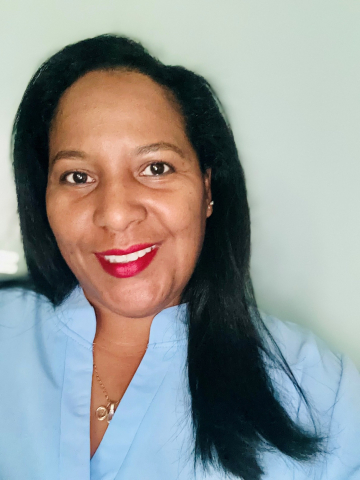
Political Scientist Dr. Michelle Munroe says social media has fundamentally reshaped how Jamaicans connect., engage, and participate in public life. This transformation, she noted, began with the shift from print media to television and has since accelerated in the digital age.
Dr. Munroe, head of the Political Science Unit in the Department of Government, University of the West Indies, Mona, said that as of January 2025, internet penetration has reached 83.4 per cent of Jamaica’s population of approximately 2.84 million people. This means more than 2.37 million Jamaicans have internet access. This wide reach enhances the influence of digital platforms in both political communications and civic participation.
She was speaking at a recent forum on ‘Democracy in the Digital Age: Challenges and Opportunities for Jamaica’s Media Landscape’, hosted by the Caribbean Institute of Media and Communications, University of the West Indies, Mona, in association with Southern Oregon University, United States.
According to Dr. Munroe, Jamaica had approximately 1.56 million active social media users, aged 18 and above. This figure represents 54.8 per cent of the total population and a significant 70.9 per cent of those eligible to vote — since roughly 2.2 million Jamaicans (77.3 per cent) are 18 or older. “In effect, seven out of every ten eligible voters are now reachable via social media platforms,” she emphasised.
Instagram, is the most widely used social media platform in Jamaica, accounting for 45.65 per cent, followed by Facebook 21.51 per cent, YouTube and TikTok each at 11.5 per cent, and X (formerly Twitter) at 0.88 per cent. “WhatsApp remains a primary tool for political mobilisation,” said the political scientist.
It was not surprising that the majority of Jamaicans, a whopping 79.3 per cent, access the internet using mobile; some 18.6 per cent using desktops computers, and 2.1 per cent tablet computers. These figures highlight the mobile-first nature of Jamaica’s digital landscape.
Drawing on data from DataReportal (2025): Digital 2025 Jamaica and from NapoleonCat (2025) Dr. Munroe noted that social media use was highest among Jamaicans under 34 years. Platforms like TikTok and Instagram dominate in this demographics, which is more likely to engage in digital civic and political activities – ranging from community service, and advocacy to political discussion and activism. However, not all in this age group are actively engaged, and participation can be symbolic or issue-specific,” she said.,
She also warned against conflating platform activity with civic action. High traffic on Instagram or viral videos on TikTok, she noted, should not be mistaken for deeper democratic engagement. “Digital platforms collapse public and private spaces. The same platforms where you organise a protest are where you post selfies or follow dance trends. This fluidity makes it harder to sustain a coherent public sphere,” said Dr. Munroe.
In the meantime, the Ministry of Education’s Dr. Timar Stephenson, senior education officer, Planning and Development Division, who represented Education, Skills and Youth Minister Senator Dr. Dana Morris Dixon, said although democracy has undergone centuries of transformation, the foundational principle remains -- power must be derived from the people and exercised with their informed engagement.
“At the Ministry of Education, Skills, Youth and Information, we remain committed to participatory governance. We engage with stakeholders through consultations, town halls, public opinion research, and digital outreach platforms. Our Monitoring and Evaluation Units work systematically to ensure that policy is not created in isolation, but shaped by public discourse and societal needs.
“Yet we acknowledge: the terrain has shifted. The traditional media, once the singular gatekeepers of information and public discourse, now shares that role with a rapidly expanding digital ecosystem. While this diversification presents challenges, it also offers powerful new tools for reinforcing democracy,” said Dr Stephenson.
She added that the digital revolution has transformed the mechanics of governance. On one hand, she said, it has expanded the channels through which citizens can engage, such as social media, live-streamed stakeholder forums, and real-time feedback mechanisms which now supplement traditional consultations.
“On the other hand, the proliferation of digital voices has brought with it a fragmentation of discourse. Unverified information and populist narratives can now shape public perception faster than institutions can respond. Academic rigour and expert review are often side-lined in favour of immediacy and the viral meme.
“We must manage this critical tension — balancing free expression with the need for accurate, responsible communication,” said the senior education officer.
Dr. Mark Shibley, professor emeritus at Southern Oregon University in the United States, in a presentation on civic engagement, said only 20 per cent of Americans now say they have confidence in their government, down from 77 per cent in 1963. Now only 34 per cent of Americans, he stated, say that their neighbours can be trusted, showing a growing lack of trust. He also noted that youth voter participation in the 2020 presidential election was 50 per cent, compared to 39 per cent in in 2016. But he pointed to growing political polarisation in the Unites States
He said adjustments in media dynamics require careful reflection on what constitutes effective citizens engagement in a digital age.
“Democracy in the Digital Age: Challenges and Opportunities for Jamaica’s Media Landscape,” said Professor Shibley.
Senior journalists, Dashan Hendricks of the Jamaica Observer, and George Davis of Nationwide News also participated in the discussions.

